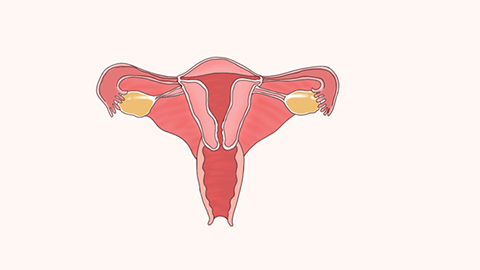What should I do about endometrial thickening at the age of 50?
Generally, endometrial thickening occurring at age 50 may be caused by perimenopausal hormonal fluctuations, long-term unopposed estrogen stimulation, endometrial polyps, simple endometrial hyperplasia, or complex endometrial hyperplasia. It is recommended to seek timely medical consultation to identify the underlying cause, followed by appropriate interventions such as general management, medication, or surgical treatment under a physician's guidance. Detailed explanations are as follows:

1. Perimenopausal Hormonal Fluctuations: At around 50 years of age, women are often in the perimenopausal period. Ovarian function declines, leading to an imbalance in estrogen and progesterone secretion. Continuous estrogen action on the endometrium results in thickening. Maintain a regular sleep schedule, avoid staying up late and excessive fatigue, reduce psychological stress, and increase soy product intake in your diet to help regulate hormone levels.
2. Long-term Unopposed Estrogen Stimulation: Without progesterone supplementation, continuous estrogen action on the endometrium can lead to thickening. Progesterone should be supplemented under medical guidance, using medications such as progesterone capsules, dydrogesterone tablets, or medroxyprogesterone acetate tablets to regulate the endometrial cycle and prevent excessive thickening.
3. Endometrial Polyps: Localized overgrowth of endometrial tissue forms polyps, causing endometrial thickening, which may be accompanied by abnormal bleeding. Small polyps may be monitored regularly, while larger ones or those causing symptoms require hysteroscopic endometrial polypectomy to remove the polyps and improve the thickened endometrium.
4. Simple Endometrial Hyperplasia: This condition involves increased endometrial glands without cellular atypia, usually caused by hormonal imbalance, and is considered mild hyperplasia. Follow your physician's instructions to use medications such as progesterone capsules, dydrogesterone tablets, or medroxyprogesterone acetate tablets for cyclic treatment to reverse the hyperplastic state.
5. Complex Endometrial Hyperplasia: This involves excessive proliferation of endometrial glands with complex architecture, carrying a higher risk than simple hyperplasia, and requires active intervention. Medications such as medroxyprogesterone acetate tablets, dydrogesterone tablets, or progesterone capsules may be used. If medication proves ineffective, consider hysteroscopic endometrial resection to remove the thickened endometrium and reduce future risks.
Maintain a positive mood and avoid anxiety in daily life. Regular gynecological examinations are necessary to monitor endometrial changes. Reduce consumption of high-sugar and high-fat foods, engage in appropriate physical activity, maintain a healthy weight, and support hormonal balance and gynecological health.





